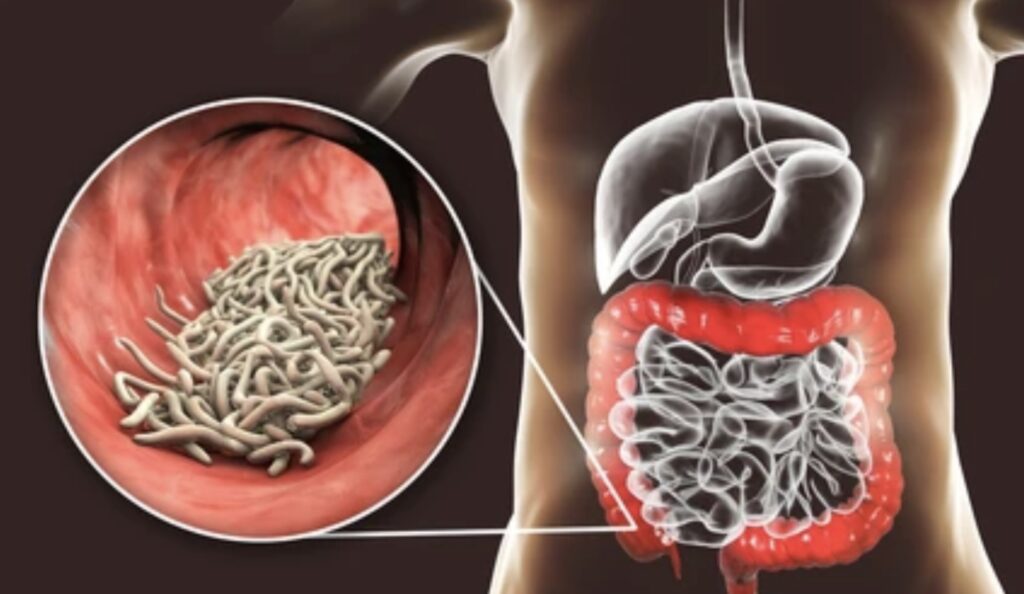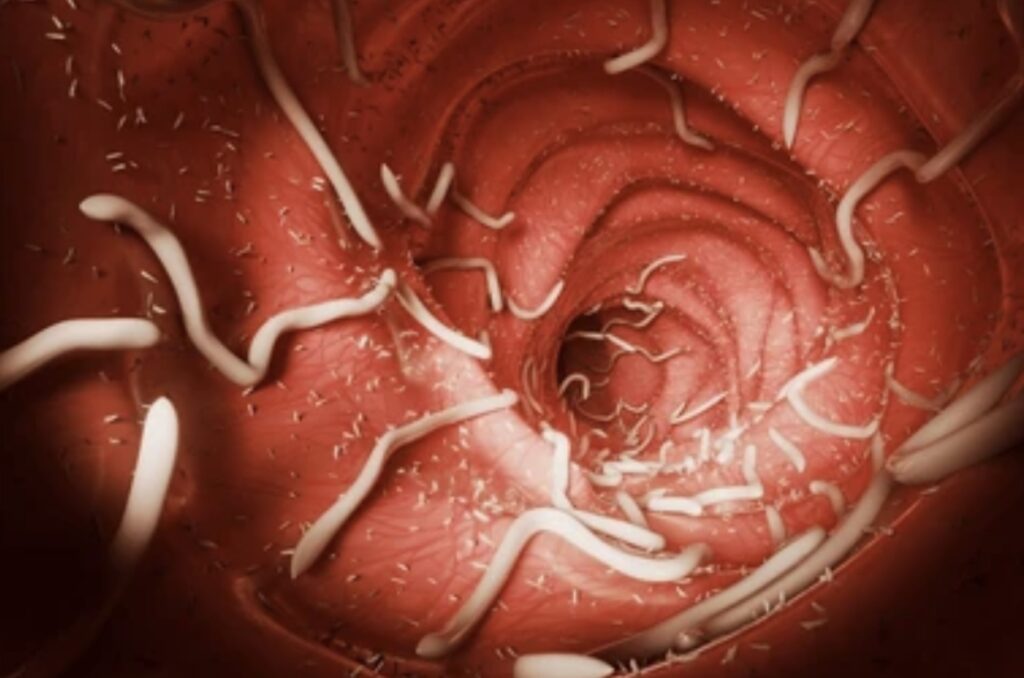Introduction
Ascariasis and its vector: Ascariasis is one of the most prevalent parasitic infections worldwide, caused by the roundworm Ascaris lumbricoides. This intestinal parasite thrives in areas with poor sanitation, affecting millions of people, especially in tropical and subtropical regions. In this article, we will explore the basics of ascariasis, its transmission, symptoms, prevention, and how it can be treated.
What is Ascariasis?
Ascariasis is an infection caused by Ascaris lumbricoides, a large roundworm that lives in the human intestines. Adult worms can grow up to 35 cm long and can live for up to two years. This parasitic infection is commonly found in areas where sanitation and hygiene practices are inadequate, affecting children and adults alike.
Life Cycle of Ascaris lumbricoides

Understanding how ascariasis spreads involves knowing the life cycle of Ascaris lumbricoides:
- Eggs in the Environment: Infected individuals excrete Ascaris eggs in their feces. These eggs can survive for months in contaminated soil or water.
- Ingestion by Humans: Humans can ingest these eggs by consuming contaminated food, water, or by coming into contact with contaminated soil.
- Larvae Migration: Once ingested, the eggs hatch in the small intestine, releasing larvae. The larvae travel through the bloodstream to the lungs.
- Lung to Intestine: The larvae then move from the lungs to the throat, where they are swallowed and return to the intestines to mature into adult worms.
- Egg Production: The adult worms reproduce, and the cycle repeats as new eggs are passed in the feces of the infected person.
How is Ascariasis Transmitted?
Ascariasis is primarily transmitted through the ingestion of Ascaris eggs that have been deposited in the environment via human feces. Here are the main ways the infection spreads:
- Contaminated Water and Food: Eggs can contaminate drinking water, food, and vegetables grown in contaminated soil. Poor hygiene and improper food handling increase the risk of transmission.
- Soil Contamination: In regions with poor sanitation, Ascaris eggs often contaminate soil, especially in places where people defecate outdoors. Children are particularly at risk since they may play in contaminated soil.
If basic hygiene practices, such as handwashing and safe food handling, are neglected, the risk of transmission increases significantly.
Symptoms of Ascariasis

Ascariasis is often asymptomatic, especially in mild cases. However, when symptoms do occur, they can vary based on the stage of the infection.
Lung Stage (Larvae Migration):
- Coughing
- Wheezing
- Chest pain
- Fever
- Shortness of breath
Intestinal Stage (Adult Worms):
- Abdominal pain
- Nausea and vomiting
- Diarrhea or constipation
- Visible worms in the stool or vomit
- Malnutrition (due to the worms consuming nutrients)
In severe cases, complications like intestinal blockage, peritonitis, or respiratory issues may arise, particularly if the worms migrate to other parts of the body, such as the bile ducts or pancreas.
Diagnosing Ascariasis
Ascariasis is diagnosed through a variety of methods, including:
- Stool Microscopy: The most common diagnostic method is examining stool samples under a microscope for the presence of Ascaris eggs.
- Imaging: In severe cases, imaging techniques such as X-rays or ultrasound can be used to detect intestinal blockages or worms in the body.
- Blood Tests: While not routinely used, blood tests can help identify antibodies to Ascaris in the blood, indicating an active infection.
Treatment for Ascariasis
Ascariasis can usually be treated with medications that kill the worms or prevent their growth. The most commonly used drugs are:
- Albendazole
- Mebendazole
- Ivermectin (in severe cases)
These medications work by either paralyzing the worms or inhibiting their ability to absorb nutrients, causing them to be expelled from the body. In most cases, treatment is highly effective, and the worms are eliminated within days.
Prevention of Ascariasis
Preventing ascariasis involves improving sanitation, hygiene, and environmental conditions. Here are key strategies to reduce the risk of infection:
- Improve Sanitation: Proper waste disposal and sewage systems can prevent the contamination of water and soil with Ascaris eggs.
- Handwashing: Regular handwashing with soap, particularly before eating and after using the toilet, is one of the most effective ways to reduce the spread of Ascaris.
- Clean Water Supply: Access to safe, clean drinking water is essential for preventing the ingestion of Ascaris eggs.
- Food Hygiene: Washing fruits and vegetables thoroughly, especially those consumed raw, can prevent ingestion of contaminated food.
- Health Education: Educating communities about proper hygiene and the importance of sanitation is crucial for preventing the spread of ascariasis.
Why is Ascariasis a Global Health Concern?
Ascariasis continues to be a major health issue in developing countries, particularly in regions with limited access to sanitation facilities, clean drinking water, and healthcare. Children, in particular, are at high risk because they are more likely to play in contaminated environments or eat unwashed food. Chronic infections in children can lead to malnutrition, growth retardation, and impaired cognitive development, which can have lifelong consequences.
The World Health Organization (WHO) and other health organizations have identified ascariasis as one of the key neglected tropical diseases (NTDs) that require targeted intervention to reduce its prevalence. Improved sanitation, education, and access to healthcare can go a long way in reducing the burden of ascariasis.
Conclusion
Ascariasis is a preventable disease, but it requires concerted efforts at both the individual and community levels. Ensuring access to clean water, improving sanitation facilities, and promoting hygiene education are critical to controlling the spread of Ascaris lumbricoides. If you live in or travel to areas where ascariasis is common, taking steps to avoid exposure, such as washing hands regularly, eating properly cleaned food, and drinking safe water, can significantly reduce your risk of infection.
If you suspect you or your child may have ascariasis, seeking medical attention promptly is important. With timely diagnosis and appropriate treatment, ascariasis is a curable disease, and its impact on health can be minimized.
Discover more from ZOOLOGYTALKS
Subscribe to get the latest posts sent to your email.


